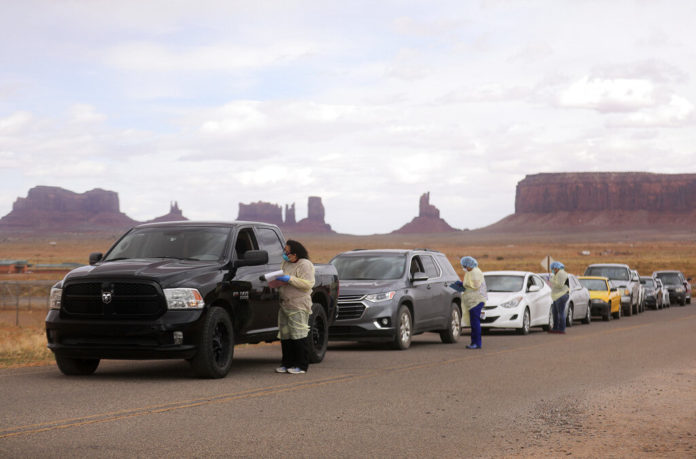
The Navajo Nation Department of Health has issued a health advisory warning to residents about the “uncontrolled” spread of the coronavirus as the number of confirmed cases increases.
The department announced Wednesday that 29 communities were affected by the spread throughout the reservation, including in the Arizona communities of Cameron, Leupp, Dilkon, Ganado, and Round Rock.
“The uncontrolled spread of COVID-19 means that people who are testing positive in these areas likely do not know where or how they contracted the virus,” Navajo Nation President Jonathan Nez said. “We strongly urge everyone to take precautions and to keep their guard up.”
Officials have urged residents to wear face masks, practice social distancing and limit gatherings to less than five people. A daily curfew from 9 p.m. to 5 a.m. also remains in effect on the Navajo Nation.
“Protect yourselves and continue to be strong as we move forward through this pandemic. Please think of your children, elders, and those with underlying health conditions,” Vice President Myron Lizer said.
The Navajo Nation spans more than 27,000 square miles (70,000 square kilometers) of land in Arizona, New Mexico and Utah.
Health officials have said the Navajo Nation has had more than 11,900 confirmed virus cases and 582 deaths as of Tuesday.
The number of infections is thought to be far higher because many people have not been tested, and studies suggest people can be infected with the virus without feeling sick.
For most people, the new coronavirus causes mild or moderate symptoms, such as fever and cough that clear up in two to three weeks. For some — especially older adults and people with existing health problems — it can cause more severe illness, including pneumonia, and death.
Republished with the permission of the Associated Press.














